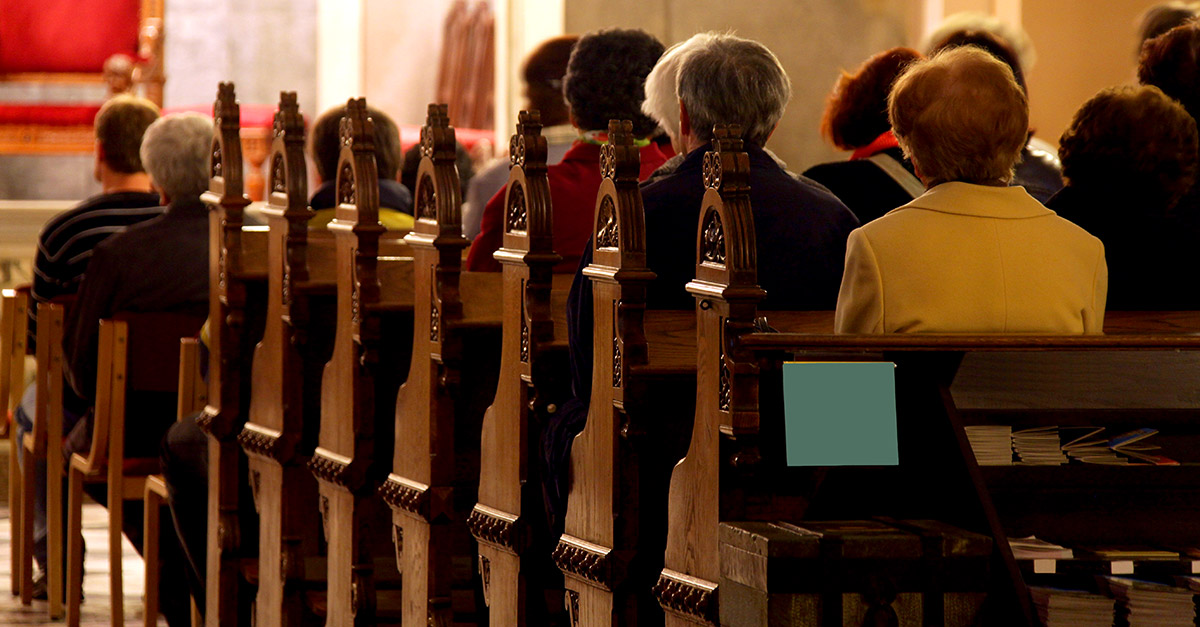
“Confession is good for the soul only in the sense that a tweed coat is good for dandruff – it is a palliative rather than a remedy.” – Peter De Vries
“Confession is good for the soul,” so they say. And when it’s shared by a group, it’s never too painful.
Peter De Vries, the American editor and novelist explained that confession is like a tweed coat hiding the problems without getting at the cause.
Yet, most faith traditions use confession as a way to acknowledge shortcomings and seek forgiveness. That’s good, but lately I’ve wondered if this group confession, with its community language, isn’t getting in the way of my personal transformation.
In short, does the first person plural or “we” language serve as a tweed coat in hiding the problem from my personal, singular, responsibility.
My friends steeped in theological training will have reasons for the corporate “we” in public confession and I want to hear what they have to say. But in this story, I’m only speaking for myself and my choice to take off the old handed-down tweed coat.
I want to stop hiding behind generalized group confessions of sins and start doing those things that will help me become a better person.
I want to better understand how it is “I” who should welcome the stranger and feed the poor, not “we.” Because, as Mother Teresa said, “Each one of them is Jesus in disguise,” and I wouldn’t hide from Him.
Now when I stand to confess, silently, or softly, I confess in the singular. Try it. See if it becomes more personal for you as it has for me. There’s no tweed in my singular confession. My new solid black of personal responsibility shows every speck.
My friends will tell me I can pray in the singular anytime, and that’s true. I’m just afraid my choice of words wouldn’t be as pointedly powerful as the ones printed for me each week.
Making my confession personal now keeps it with me 24/7, not just an hour on Sunday. It helps me understand how what I do and say everyday affects “the least of these.”
Loving God, you provide for me abundantly, yet too often, I do not trust your providence. I live according to the myth of scarcity, denying your generous provision. I believe there is not enough, so I hold on to what I have in fear. Hear me as I confess my anxiety that there is not enough…
I made the choice to change the confession from last Sunday’s service to singular. It now has more meaning for me as it becomes mine, not the whole groups. What do you think?
If you have a faith tradition, what do you think about confession? Do you just read the words as printed in the bulletin, or flashed on the screen, not worrying about what they mean, feeling they are meant for others more than you? Or do the words become personal for you, and how do you assure that personal choice?
How do you think your life would be different if you took the first person singular approach to “the least of these” in your thoughts and actions everyday, all day, all week?
As always, this is my opinion – you can agree or disagree, either is good. The conversation starts here.
“In the ordinary choices of every day we begin to change the direction of our lives.” – Eknath Easwaran
Epilogue
Try this prayer, but change the words from plural to singular. Does that make the prayer uncomfortable for you? It does for me.

I like your changes. Making it personal is important. For me, confession needs to be even more personalized. I need to get specific with God about my failings. Confession is just half the battle though, repentance is the rest. Trying my best not to make the same mistakes, that’s the hard part for me.
Tom –
Thanks for your comment. I agree, being specific in confession and then not repeating the mistake, or sin, is the key. The other value I’m finding from my new choice is the longer period of awareness. Instead of holding the thought for only the church hour, I’m finding my first person singular approach to “the least of these” stays with me all day, and even all week.
Yes, it’s not making the same mistake that’s the hard part for all of us.
– Bruce